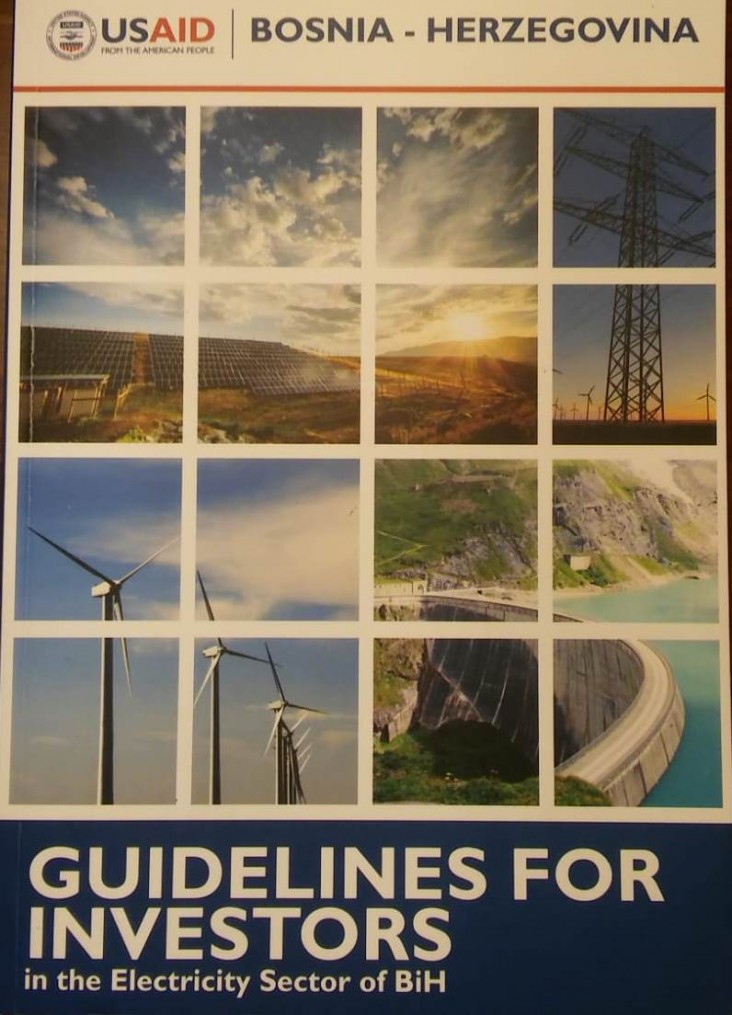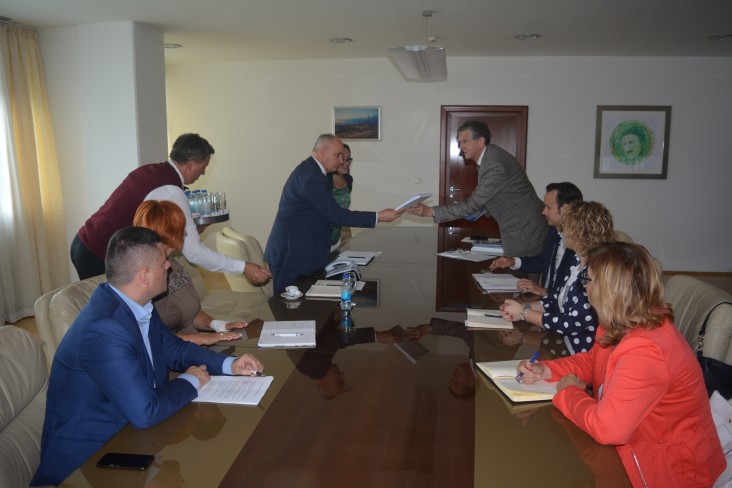Speeches Shim

Until recently, there was no single place where investors could obtain clear and complete information about all the permits they needed to build an electric power plant in Bosnia and Herzegovina (BiH). Within the complex organization of the country – 13 governments: the state, two entities, and 10 cantons – and the numerous permits required, there is no single body to coordinate the process and communicate with potential investors.
But to investors and even local authorities’ relief, USAID has untangled the maze of institutions and knots of confusion, not an easy feat in a country with such a unique and complex government structure, which is why it was never done before.
The most frequently encountered problem is the imprecisely defined “competence” for issuing certain permits, which is directly caused by a lack of harmonization between the laws at the various levels of government. In practice, competence may be deemed to rest with none of the government levels or, instead, each level of the government may proclaim itself the competent authority.
USAID’s Energy Investment Activity (EIA) removed the confusion and mystery surrounding the process by identifying all the stages in the process and determining which permits are required for constructing and/or operating power facilities, the order in which they must be obtained, and which authorities are responsible for issuing each of them. EIA did this for each type of power plant – thermal, solar, wind, hydro, and biomass.
As a result of all its painstaking work, the project produced and published the first-ever Guidelines for Investors in the Electricity Sector of BiH, making the information available to the public and, more importantly, to investors. The guide makes the process easier for new and existing investors to navigate the complex administrative permitting system, which requires 20 licenses and 100 steps and takes two years to build an electricity facility in BiH. The comprehensive guide is also a valuable reference for the staff at the multitude of relevant institutions, explaining for the first time where they fit and their role in the overall process and what they should do in specific cases.
The guide was approved by and then published on the websites of the Federation of BiH Ministry of Energy, Mining and Industry and on the Republika Srpska Ministry of Industry, Energy and Mining. In addition, USAID prepared a video (in English and Bosnian) of useful information for those interested in investing in the BiH electricity sector.

“During the permitting process for the construction of our biogas power plant, we faced numerous obstacles, including an unclear legal framework and a general lack of information about the permitting process,” said Adin Fakic, Director, Milkos d.d. Sarajevo. Milkos started building a biogas power plant, but had to suspend construction due to the lack of incentive quotas for the generation of power from biogas, despite assurances received from competent authorities that the quota would be available.
“The Guidelines for Investors not only help resolve the problems that we investors are faced with, but resolve the problems that the competent authorities face as well. If the Guidelines had existed when we started obtaining our first permits, we would have saved a lot of time and resources,” says Adin Fakic, director of Milkos Company in Sarajevo.

Other companies report similar experiences. Elektroprivreda BiH waited for over a year to receive urban planning approval to build the Vranduk Hydroelectric Power Plant because of dysfunctional institutions. And in permitting its VE Mesihovina plant, Elektroprivreda HZHB said it had to re-submit the same papers to multiple authorities – with an overlap of about 40 percent.
“The Guidelines for Investors will definitely be of value to other investors planning to build a power plant in BiH,” Fakic said.
Bosnia and Herzegovina’s Energy Investment Potential
The energy sector is considered BiH’s greatest potential for long-term economic development. The country is a surplus electricity generator and is one of just two countries in Southeast Europe that exports electricity. BiH has significant reserves in fossil fuels and potential renewables, especially hydropower, of which only one-third of total potential is being used.
BiH’s problem is its aging power generation infrastructure; almost no significant infrastructure has been built in the past 25 years. The old infrastructure reduces the security of BiH’s energy supply and threatens its revenue-generating electricity exports. It is critical that Bosnia overhaul its existing plants and develop new generation capacity. BiH has extraordinary potential for expanding capacity if it can attract the investment, and the construction and operation of additional generation capacity would create many new jobs, which are also sorely needed in BiH.

Comment
Make a general inquiry or suggest an improvement.